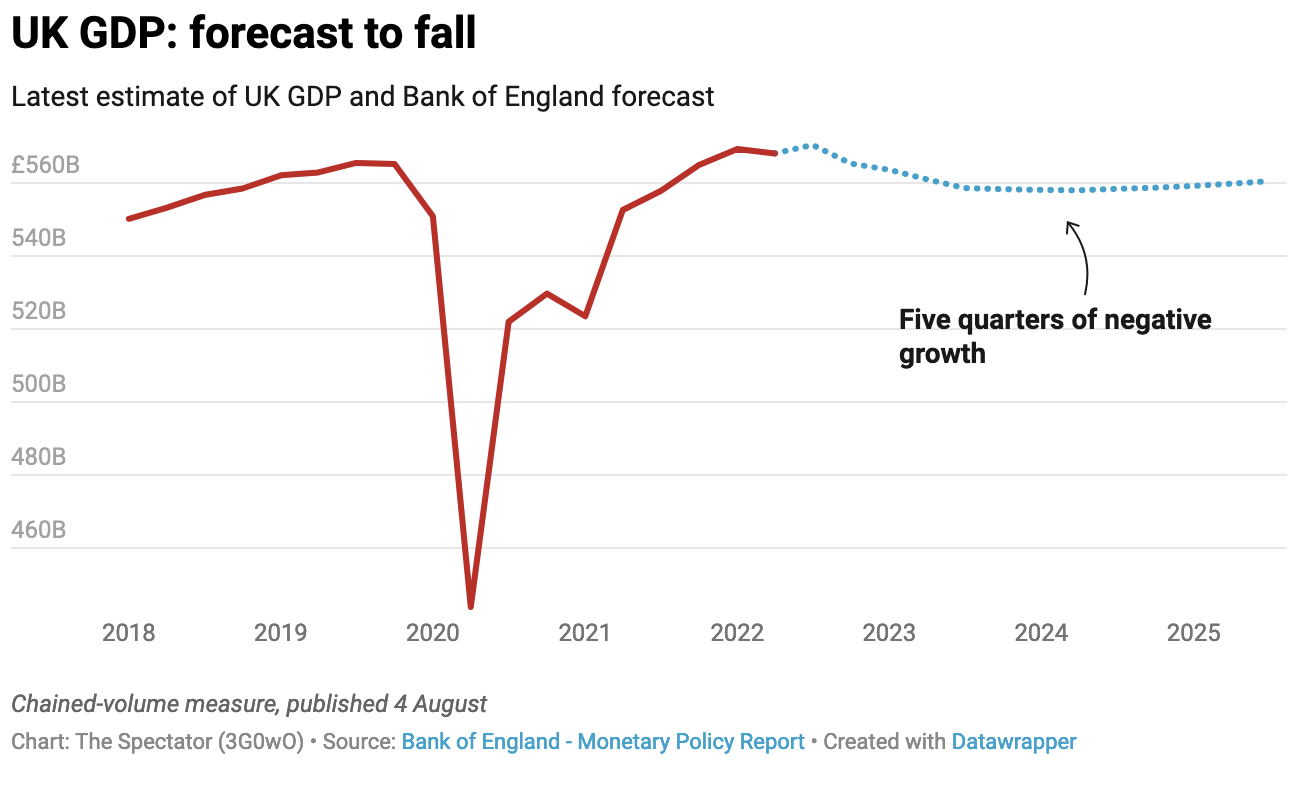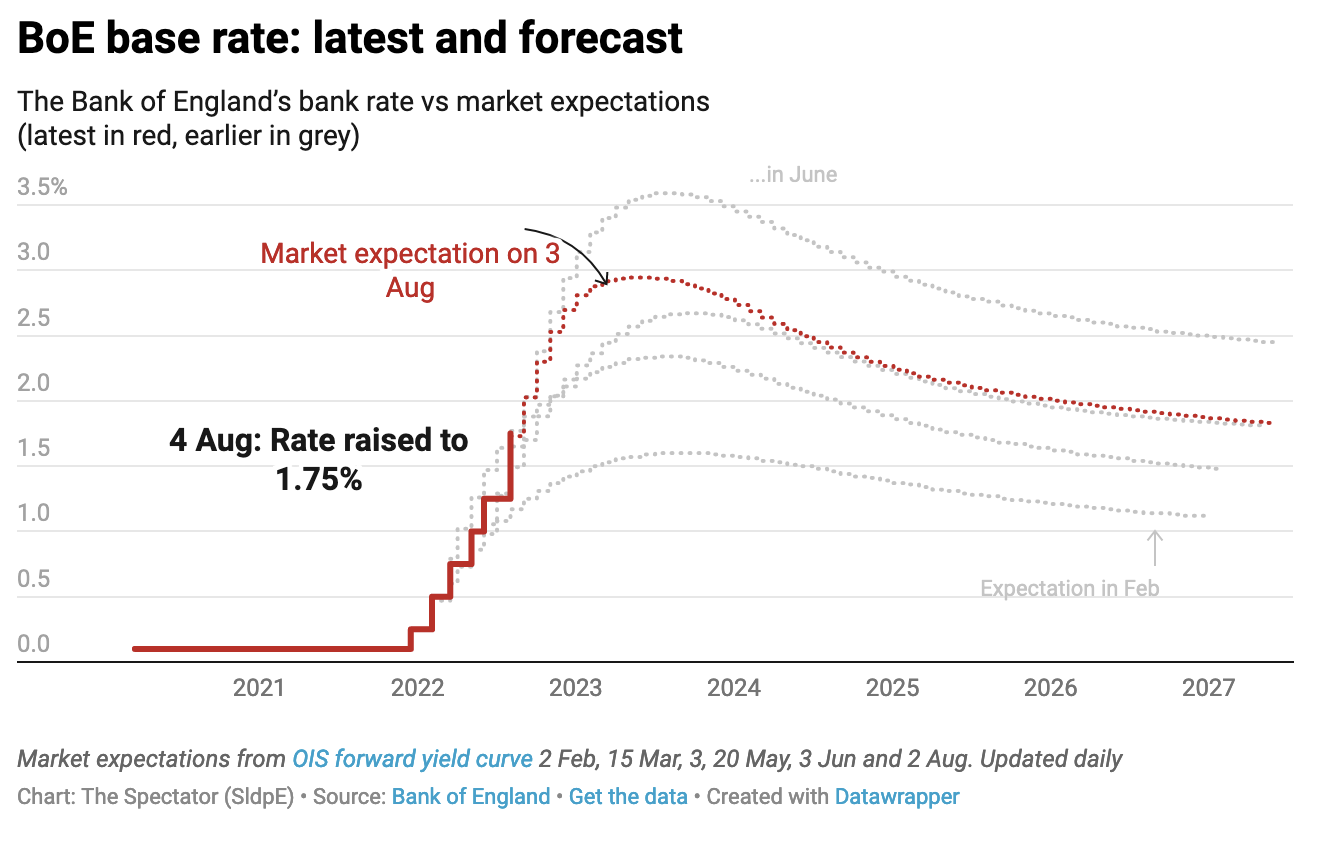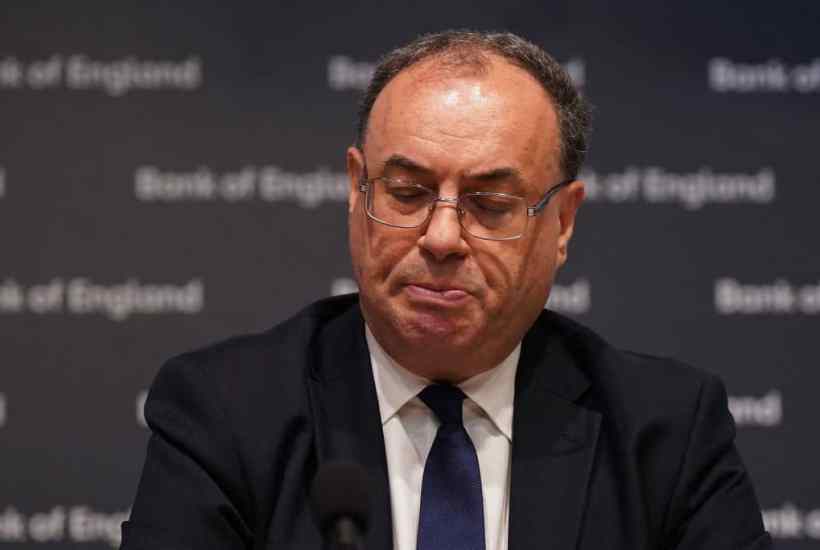The Bank of England has warned that Britain will fall into a recession this year. Its Monetary Policy Report, released today, predicts that the economy will shrink from October, with the downturn lasting until the end of 2023. The Bank of England also hiked interest rates from 1.25 per cent to 1.75 per cent, the biggest rise for 27 years.
The Bank of England’s Monetary Policy Committee has never previously raised the base rate by 0.5 per cent in its 25 years of existence. Previously it has only upped rates in quarter-point stages (and there haven’t been many of those, especially in recent years). The rise will, of course, affect mortgages, but perhaps not to the extent that interest rate rises used to. Many more homebuyers today are now on fixed rate mortgages which will not be instantly affected by the change in the base rate. Borrowers will only receive a hit when their existing deal expires.

But today’s rate hike disguises a longer-term trend which is likely to prove a more important driver of markets in the next few weeks and months. While rates are increasing, market expectations of future rises are, in fact, now falling. The forward yield curve, carried on The Spectator’s Data Hub, shows that in June, markets were expecting the Bank of England’s base rate to peak at 3.59 per cent in July 2023. This week, markets are expecting rates to peak at 2.85 per cent in June 2023. That is quite a chunky downwards revision. But expectations for future rate rises remain significantly higher than they did in the spring.

That’s the sliver of good news. Here’s the bad news: the Bank of England’s warning of a recession comes after the National Institute for Economic and Social Research (NIESR) made a similar gloomy prediction this week. The NIESR forecast yesterday that Britain would experience three quarters of negative growth, with unemployment peaking at 5 per cent. The Bank of England is predicting negative year-on-year growth lasting into 2024.
There’s further misery when it comes to inflation. The Bank of England’s quarterly Monetary Policy Report, also released this morning, shows that the Bank now expects the Consumer Prices Index (CPI) to peak at 13.3 per cent in October, and for inflation to remain higher for longer.<//>
Got something to add? Join the discussion and comment below.
Get 10 issues for just $10
Subscribe to The Spectator Australia today for the next 10 magazine issues, plus full online access, for just $10.





















Comments
Don't miss out
Join the conversation with other Spectator Australia readers. Subscribe to leave a comment.
SUBSCRIBEAlready a subscriber? Log in